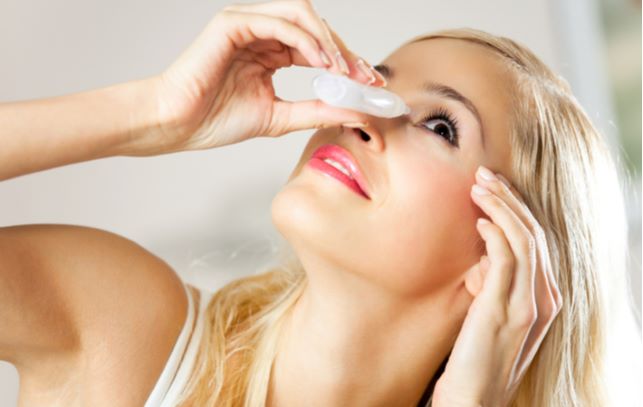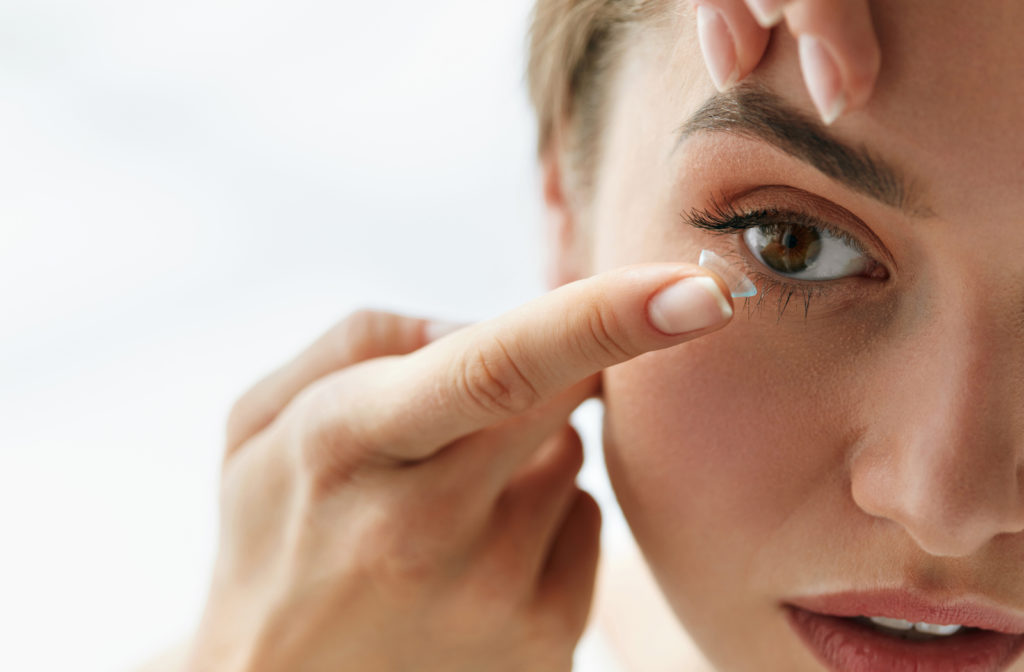Dry eye disease can lead to irritation and discomfort, especially for contact lens wearers. The associated inflammation can make wearing your lenses difficult. If you wear contacts, is there a way to treat this condition?
Continue reading to learn more about dry eyes and the available treatments for contact lens wearers.
What is Dry Eye Disease?
Dry eye disease is a common condition where your tears can’t lubricate your eyes effectively. Your tears help your eyes stay moist and free of debris, but instability in the tear film can leave you with dry and irritated eyes.
Because dry eye disease is so common, dry and tired eyes may feel normal, but this condition has several irritating symptoms.
Dry Eye Symptoms
Some symptoms of dry eye disease include:
- A stinging or burning sensation in your eyes
- Watery eyes
- Light sensitivity
- Blurred vision
- Eye fatigue
- Red eyes
- Difficulty driving at night
- Difficulty wearing contact lenses
Dry eye symptoms can be irritating and uncomfortable, even harmful if not treated, but what causes this condition?
What Causes Dry Eye Disease?
Your eyes can become dry and irritated for several reasons, but dry eye disease usually happens because of one or two causes. These causes are decreased tear production and increased tear evaporation.
Decreased Tear Production
It’s common for tear production to decrease with age, making older adults more at risk of dry eyes.
Besides age, tear production may decrease because of side effects from medications or medical conditions such as lupus, Sjorgren’s syndrome, or scleroderma.
Increased Tear Evaporation
Increased tear evaporation typically occurs due to poor tear quality. When your eyes blink, tears moisten the surface of the eye. The oily layer of your tear film prevents these tears from evaporating, but complications can cause your eyes to dry out more quickly.
Glands in your eyes release oil to prevent tears from evaporating, but they can become blocked or clogged, causing increased tear evaporation. When complications happen with this oil or the glands themselves, this is known as meibomian gland dysfunction.
Other factors affecting tear evaporation include:
- Infrequent blinking
- Posterior blepharitis
- Eye allergies
- Eyelid problems (ectropion & entropion)
- Wind, smoke, or dry air
- Vitamin A deficiency
If you wear contact lenses, dry eyes can make them difficult to wear. You shouldn’t have to choose between comfort and wearing your contacts; is there a way to treat dry eye disease if you wear contact lenses?
How to Treat Dry Eye Disease for Contact Lens Wearers
If you wear contacts, you’re likely keeping them in throughout the entire day, making treatments for dry eyes more tedious. In the past, you might have given up wearing your contact lenses to feel relief. Thankfully, there are a few treatment options that can help relieve irritation and inflammation.
These treatments include:
Daily Disposable Lenses
Speak to your optometrist if you are experiencing dry eyes with your current contact lenses. New contact lens materials are available that can help relieve your dry eye symptoms. Most commonly, daily disposable contact lenses are a great option.
Soft, daily disposable contact lenses can be helpful if you have dry eye symptoms. These lenses use a material called hydrogel, which contains water. You replace these lenses daily, avoiding the potential development of protein deposits that can make your eyes feel drier.
Some daily disposables consist of silicone-based hydrogel, which doesn’t allow water to evaporate as quickly, helping your eye stay moist longer.

Medicated Eye Drops
Medicated eye drops can help improve your overall tear production. Besides eye drops, oral versions of this medication are generally available.
If you’re unsure of which treatment is best for your needs, consult with your optometrist. They have the expertise to determine the best treatment for you and can offer advice on using contacts when you have dry eyes.
Using Contacts with Dry Eye Disease
While taking care of your contact lenses is important, practicing good eye health can help keep your eyes in the best possible condition. Try some of the following tips for your eye health:
- Take regular breaks when using computers & digital screens
- Keep your environment free of dust & dry air
- Avoid touching or rubbing your eyes
- Wear sunglasses regularly
- Wear eye protection when debris or other materials may enter your eyes
If you’re experiencing symptoms of dry eye disease, contact your optometrist. They can diagnose any potential issues and recommend a treatment plan based on your unique needs.


